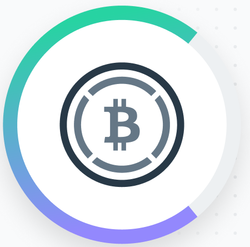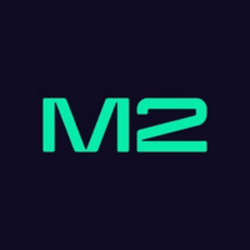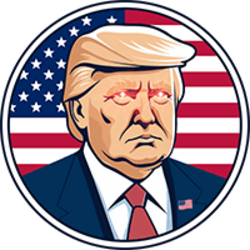
Even before the FTX (CRYPTO: FTT) collapse and market meltdown, there was enormous regulatory uncertainty about the future of cryptocurrency. Given that there is currently no central regulator and no overarching legislation for the crypto industry, the SEC has taken the lead by suggesting nearly every crypto is actually a security and should be within its regulatory purview. In 2023, the U.S. could have its first-ever comprehensive regulatory framework for crypto, and the SEC could be the regulatory body enforcing it.
So it’s perhaps no surprise that some cryptos have taken a proactive stance in avoiding potential SEC regulation. One example is Polkadot (CRYPTO: DOT), which CoinMarketCap currently ranks as the No. 11 crypto in the world by market cap. Polkadot is now arguing that all of its crypto tokens have “morphed” from securities into software. As a result, they are outside the scope of any SEC regulation. Obviously, there’s a lot to unpack here if you are thinking about buying Polkadot.
Crypto or software?
On Nov. 4, Polkadot put out a strange tweet: “Polkadot’s native token (DOT), initially offered, sold, and delivered to purchasers as a security, has morphed and no longer is a security. It is software.” That may sound like an outlandish claim, but Polkadot followed that up with a lengthy legal statement explaining its position.
Image source: Getty Images.
As Polkadot explains, it has been working in tandem with the SEC for three years to make this possible. Back in 2019, Polkadot took up the SEC on its offer to come in and talk and has been actively working on a strategy to morph all of its crypto tokens into software. Polkadot says its native token (DOT) no longer has any security-like characteristics. The only time these tokens ever behaved like securities, says Polkadot, was at the time of the initial fundraising. And here’s the thing — there is a special clause within the SEC’s Framework for “Investment Contract” Analysis of Digital Assets that enables a security to “morph” into another asset after it meets certain key criteria.
Polkadot obviously thinks it has met these criteria. It affirms that “current day offers and sales of DOT are not securities transactions, and DOT is not a security.” Given that the founders of Polkadot originally envisioned it as a Web3 blockchain platform connecting other blockchains together, one could reasonably make the case that Polkadot looks and acts like software. You can’t use the DOT token to buy things online, for example. Instead, DOT is a governance token that enables blockchains to exchange messages and transfer data.
Three SEC strategies
Right now, cryptos have two basic options when it comes to SEC regulation, and neither of them is very attractive. The first option is to stand and fight, which is what XRP (CRYPTO: XRP) did back in 2020. The SEC insisted that XRP was a “security,” and XRP insisted it was a “cryptocurrency,” and that led to a huge legal battle that has now raged on for nearly two years now. This legal battle has taken a massive toll on XRP’s future prospects, and it’s hard to see other cryptos viewing this as a desirable course of action.
The second option, of course, is to accept whatever penalty the SEC decides to enforce. You can think of this as the Kim Kardashian strategy. She admitted no wrongdoing, paid a huge penalty, and agreed to all of the SEC’s demands. While the SEC has primarily focused on high-profile individuals and entities, what if you’re a tiny crypto that gets hit with an SEC enforcement action? That might pose an existential risk. So this is not a very desirable course of action, either.
That’s why I find the Polkadot approach so interesting. Instead of fighting the SEC, Polkadot decided to engage in constructive dialogue with the SEC. At each step of the way, says Polkadot, it listened to the SEC’s input and adapted its token so it matches what the SEC is looking for. After three years, Polkadot thinks it has done everything right and is now going public with its new identity as software.
Will other cryptos follow?
It will become even more interesting if other cryptos decide to follow Polkadot’s lead. After all, there are a lot of crypto tokens out there that don’t really act or look like cryptocurrencies. For example, think about all the gaming and metaverse cryptos. Maybe those are really “games” or “gaming software” and should not be regulated as securities.
As for Polkadot, this new strategy is worth watching. However, given all the regulatory uncertainty these days, it’s hard to recommend Polkadot as a “buy” until there is more evidence the SEC has given its formal blessing for such a creative new approach.
10 stocks we like better than Polkadot
When our award-winning analyst team has a stock tip, it can pay to listen. After all, the newsletter they have run for over a decade, Motley Fool Stock Advisor, has tripled the market.*
They just revealed what they believe are the ten best stocks for investors to buy right now… and Polkadot wasn’t one of them! That’s right — they think these 10 stocks are even better buys.
See the 10 stocks
*Stock Advisor returns as of November 7, 2022
Dominic Basulto has no position in any of the stocks mentioned. The Motley Fool has no position in any of the stocks mentioned. The Motley Fool has a disclosure policy.
The views and opinions expressed herein are the views and opinions of the author and do not necessarily reflect those of Nasdaq, Inc.










































































Be the first to comment